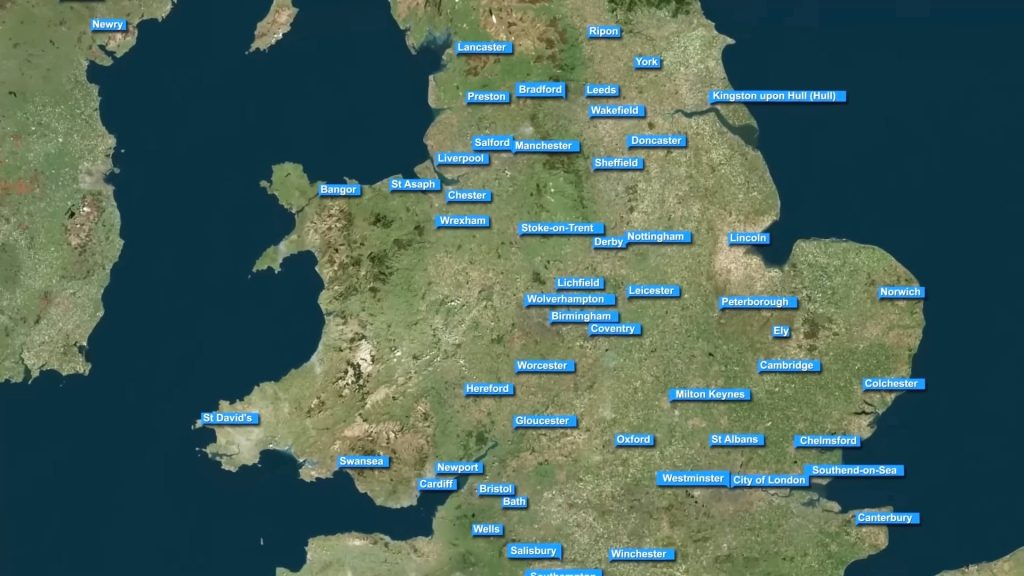The Arbitrary Way That Cities Are Determined in the UK
ComediansJay ForemanandMark Cooper-JonesofMap Menprovided an amusing explanation of the very arbitrary and if not somewhat pompous manner that determines if a landed area is called a city in The United Kingdom.
In the majority of theworld where it's not Britain the definition of city is reasonably reasonable. In Japan, a city is any settlementwith more than 50,000 people. In the USA, a city is anywhere with its own incorporated government. But Britain, as per usual, has itsown special way of doing things.

Included in this list are some very prominent locations.
...there are some very notable places that are mysteriously not on this map. Where's Reading? or Northampton? or Bournemouth?The most surprising omission from this list is none other than London. Britain's capital city is technically not a city. Although confusingly Greater London contains within it the city of Westminster and the tiny, confusingly named, City of London" which is not the same as London.
They further explain that this geographical designation was once due to the presence of a chapel, but that was changed in the tenth century when the decision was left up to the King.
In a tradition going back to the 10th Century city status in Britain is granted by personal command of The Sovereign and conferred by letters patent. ...the short version is, every city on the official list has been put there by the Monarch. It's as simple as that. So why then do so many people think it's about cathedrals?Because it used to be.
Then in the year 2000, Queen Elizabeth II opened up a lottery for towns that wanted to be designated as cities. Surprisingly, a number of notable towns did not qualify.
Three new cities were to join the list and for the first time ever, any town with ambitions to become a city could apply to be one and size did not matter. The criteria they were looking for were notable features, historic features, royal features, and a forward-looking attitude. And so lots of towns submitted bids....The hot favourite to win was Reading - the largest town in England with a fast-growing tech sector it boldly ticked all these boxes. And the winners of Millennium City status 2000 are... Inverness, Brighton and Hove and Wolverhampton.
The pair chalked this process up to it being uniquely British.
After all, a vague, archaic, mostly harmless tradition fraught with pomp and ceremony and mawkish self-aggrandising with a bit of royalty thrown in is about the most British thing imaginable and would never happen in a boring sensible country like Germany.